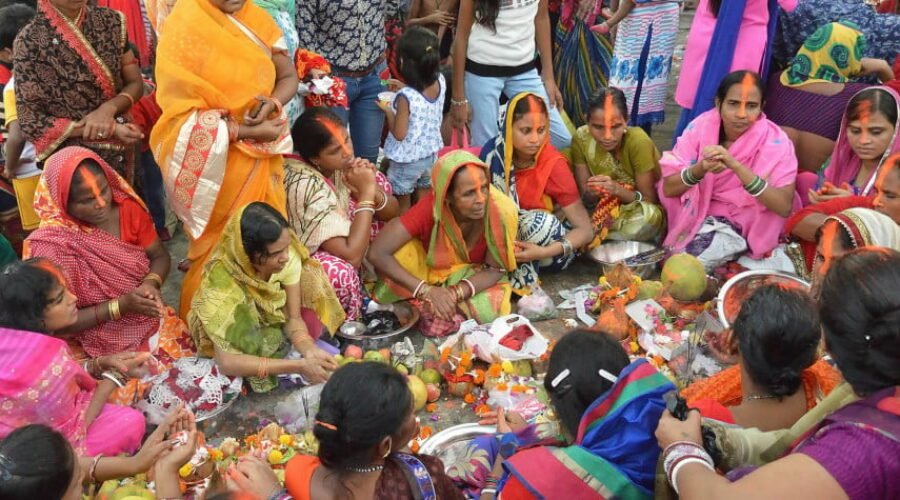Mithila Observes Jitiya Parva: The Festival of Motherly Love
Jitiya Parva, a sacred festival celebrated for the long life of children, the blessing of sons, and family happiness and peace, has commenced in the Mithila region spanning across Nepal and India.
Today, this sacred festival, observed with religious fervor, has started in various parts of Mithila, including Mahottari and other districts.
As part of the rituals, women who observe the fast start their day by bathing in rivers, ponds, or lakes, followed by offering prayers to Lord Jitamahan and departed ancestors. They make offerings of chiura (flattened rice), yogurt, amot (a preparation made from mango pulp), and fruits as prasad and also consume these offerings themselves. All the family members are also offered this prasad.
Additionally, women observe a strict fast on Friday morning, breaking it only after 10:00 AM on Saturday, during a special puja ceremony conducted by the priest at Jaleshwarnath Temple, as explained by priest Upendra Pathak.
During Jitiya Parva, devotees in the region take ritual baths in various holy water bodies such as Vigahi, Rato Jangaha, Ankushi Nadi, and the sacred lakes like Laxmi Sagar, Barun Sagar, and Bhargav Sarovar, as well as in rivers. While bathing, they listen to the stories of Jitamahan, following the traditions passed down through generations.
Before starting their fast, devotees gather at various water bodies to bathe and then apply a paste of piṇā (a type of fruit), sugar, and tori oil on the sacred banyan tree leaves. They also use this paste to apply tilak on the deity and on the branches of the family tree for the well-being of their progeny.
On the first day of the festival, a special meal known as “Machha Maruwa” is prepared, consisting of kodoko roti (rice bread) and nuniko saag (wild spinach). This meal is a local tradition and is enjoyed by every woman who observes the Jitiya fast. As a result, in every household, kodoko roti and fish are cooked on this day.
Moreover, on the religious front, it is customary for women to pierce their earlobes before observing the Jitiya fast. It is typically done with a chura (a type of bangle) and is accompanied by consuming yogurt. After this ritual, the fasting begins.
In the Jaleshwar Municipality-8, Pandit Kalikant Jha emphasizes the profound religious and cultural significance of the Jitiya Parva, which is celebrated to ensure the longevity of offspring, the blessing of sons, and family harmony.
During the Pitri Paksha period, women also performed the “pinda” offering ritual for their departed ancestors, making the Jitiya fast a revered and sacred observance in the Mithila region.
The fasting days are stringent, and women must strictly adhere to the rules. If a woman burps, hiccups, or belches during the fast, or if her mouth emits any sound, the fast is considered unsuccessful. Therefore, this festival is also known as “Khadda Jitiya,” signifying the need for extreme caution. If a woman fails the fast once, she is required to observe it for the rest of her life.
Legend has it that during the reign of King Shalivahan, a demon abducted seven sons of a woman. When the king managed to rescue the sons from the demon’s clutches, he returned them with his divine powers. In gratitude, the woman named the day “Jitumahan” and began observing a fast to celebrate the king’s triumph over the demon.
If someone starts to observe this festival then she cannot break for a single time, if someone breaks it she cannot take part ever in her lifetime. So, only a few dare to take part in this festival. However, the women of Mithila continue to follow this tradition, ensuring its enduring cultural significance in the region.
In conclusion, Jitiya Parva is not just a religious observance but also a rich cultural tradition that symbolizes the deep-rooted beliefs and values of the people of Mithila, fostering family bonds and promoting the well-being of their offspring.



